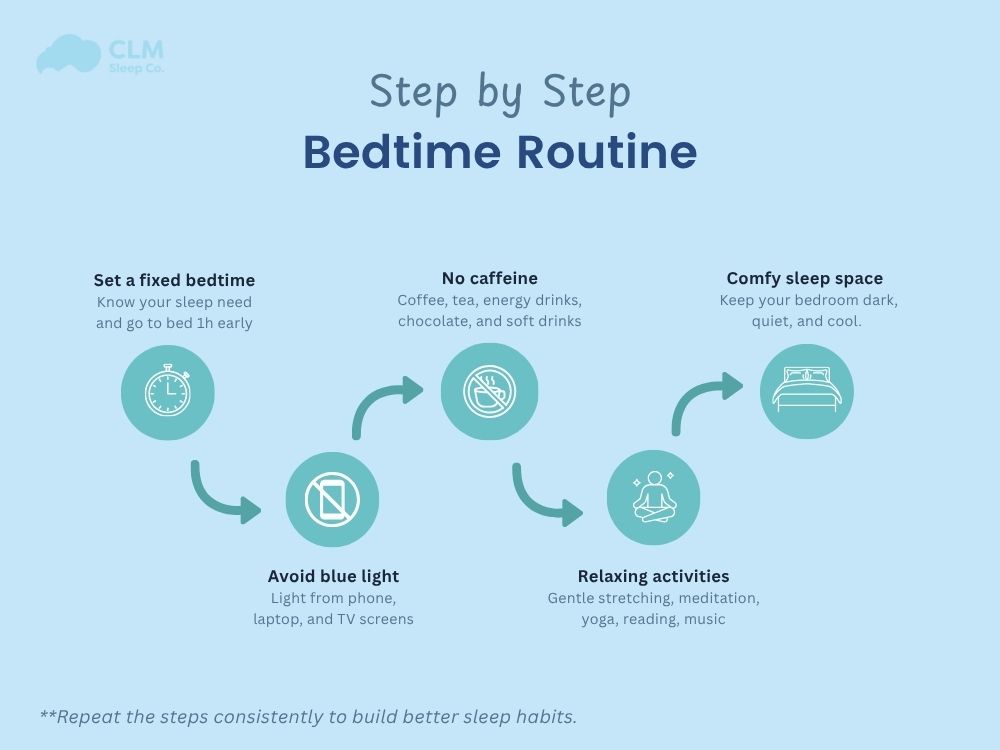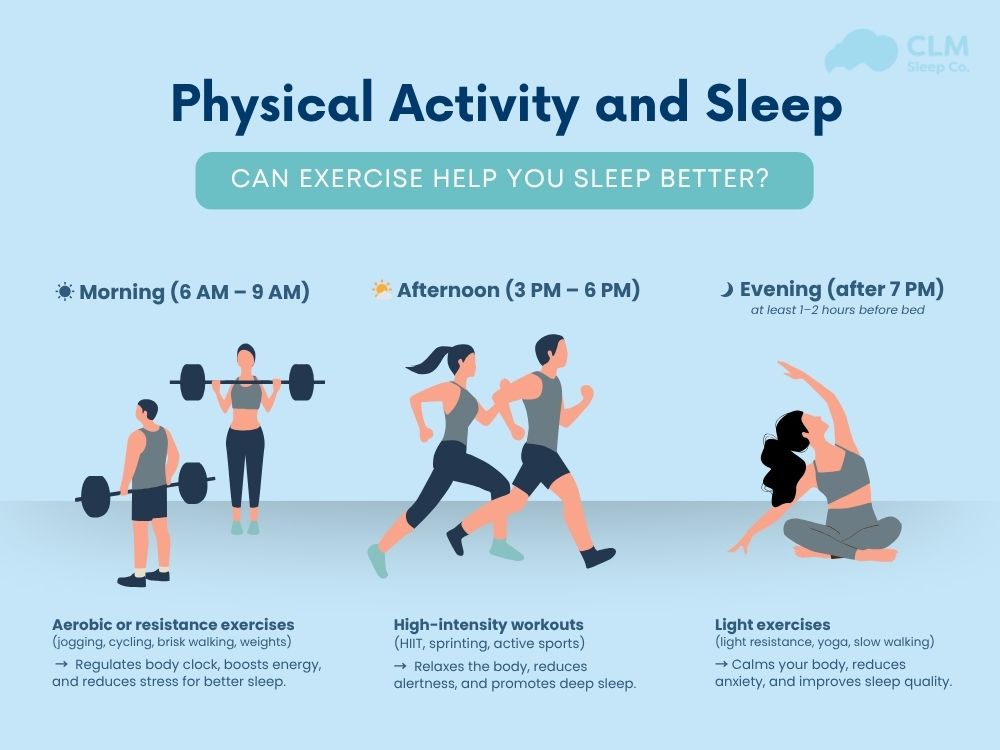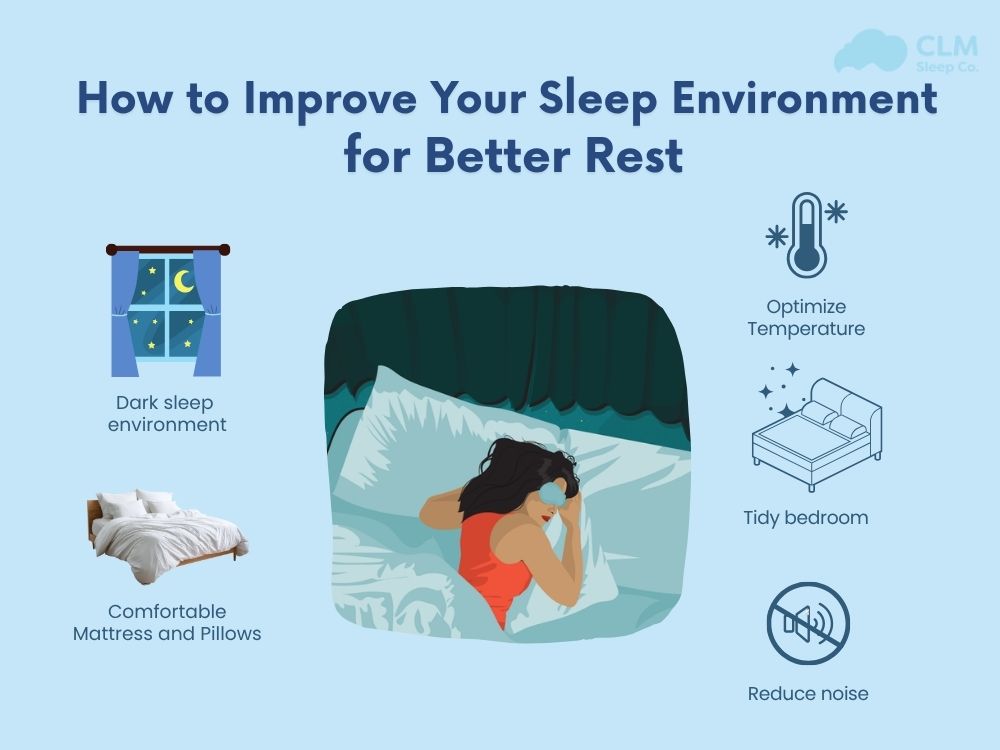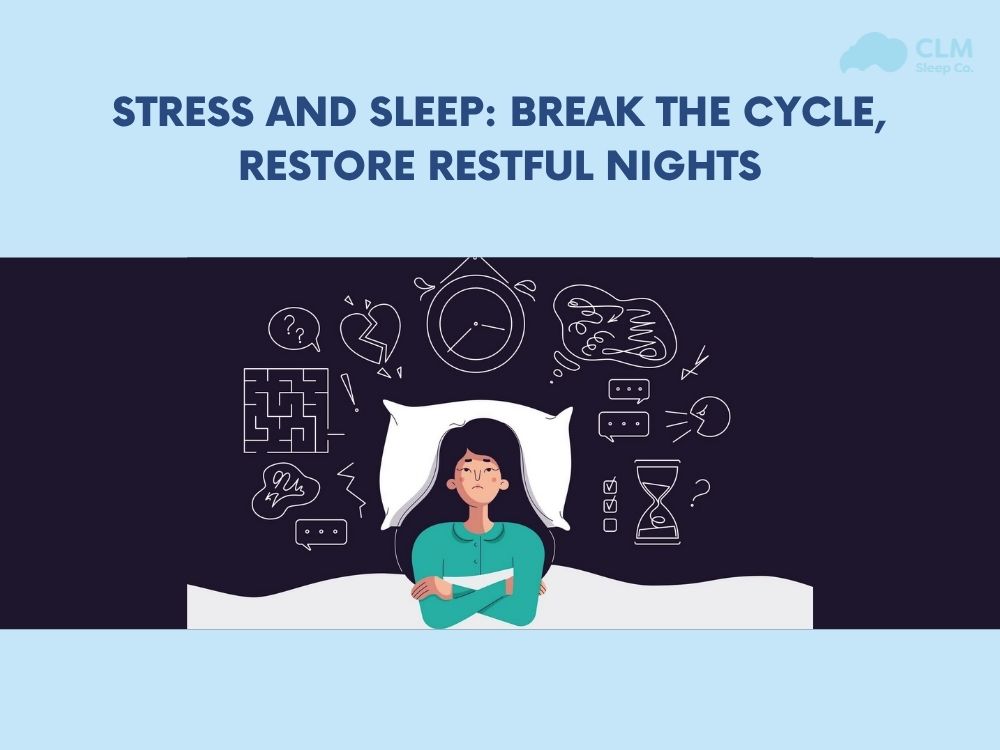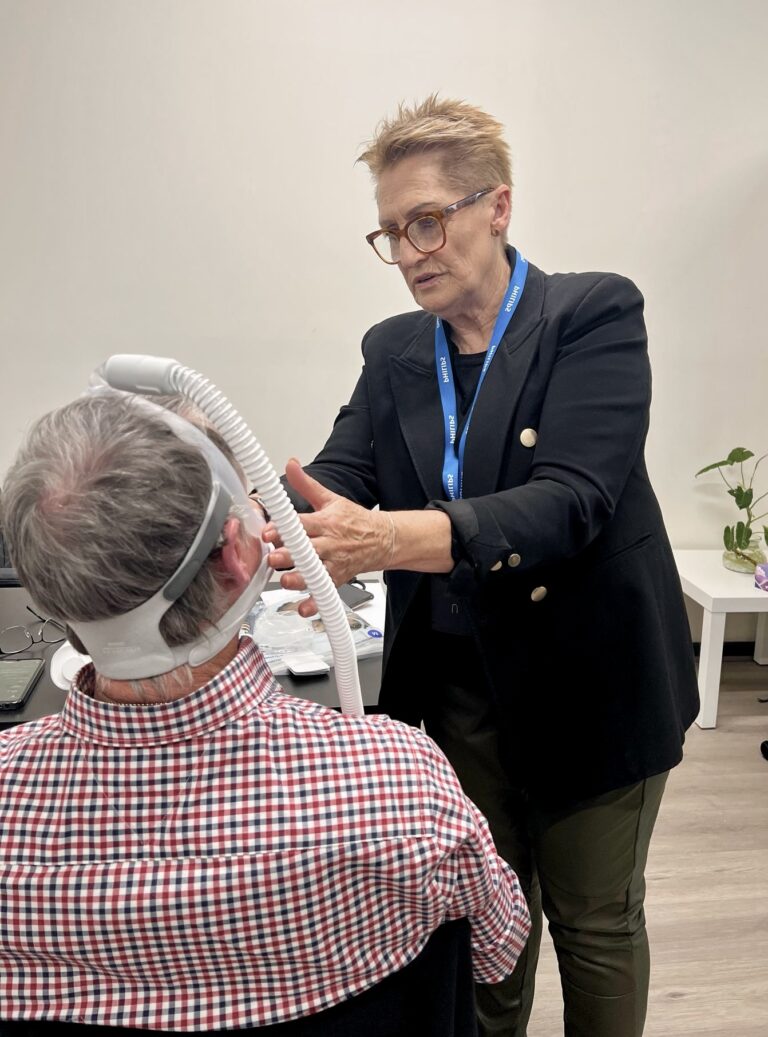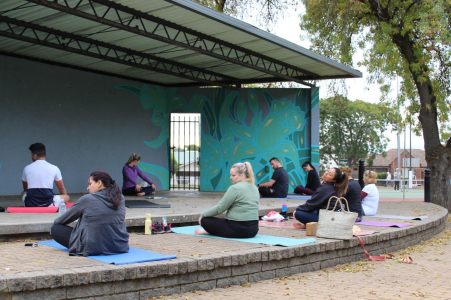In a developed civilized society, a good night’s sleep for adults does not come naturally, it starts with the right habits before going to bed. Your bedtime routine sets the stage for how easily you fall asleep and how refreshed you feel the next morning. In this article, CLM sleep will accompany you to explore what makes a bedtime routine effective, the benefits of staying consistent and practical steps you can follow to create one that truly works for you.
What is the best bedtime routine?
A bedtime routine is a series or list of activities performed consistently each night before going to bed to signal to the body that it is time to sleep, that the day has ended, and that it is time to rest. Each person at different ages, especially when they grow up, will have different bedtime routines. At its core, the best bedtime routine is one that creates a gentle transition from the stimulation of daytime to the calm of nighttime.
This routine often includes activities that quiet the mind and relax the body: Reading books, soaking tea with warm water, listening to soft music or simply dimming the lights to imitate dusk. The important thing is not the specific activity, but the regular repetition. By sending familiar signals every night, you train your body to recognize and prepare for sleep.
Read more: What are the four stages of sleep?
Benefits of a Consistent Bedtime Routine
Sticking to a bedtime routine does more than help you drift off faster, it lays the foundation for overall well being. When your evening follows a consistent rhythm, your body will learn when to rest and when to recharge, leading to deeper sleep and better recovery.
For adults, this consistency is a key part of maintaining proper sleep hygiene. It means less time tossing and turning, and more mornings waking up refreshed. Quality sleep helps stabilize mood, enhance memory and concentration, and even supports immune health. In addition, by lowering stress levels before bed, you also build greater resilience to the pressure of daily life.
For children, a bed routine is extremely important in the development process, especially in infants. Familiar sequence of calming activities provides security, easier bedtime struggles and encourages independence as they learn to settle themselves. These habits not only nurture the balanced development of children but also emotionally help children enhance their attention and learning, giving them an early advantage in both social and academic aspects. A bedtime routine is not just about the night, it’s an investment in the day that follows.
Read more: Is 5 Hours Sleep Enough?
Common Elements of an Effective Bedtime Routine.
While each person tailors their own version, the most effective routines share a few building blocks. They usually begin with a fixed bedtime and wake up time. This regularity tells the body when to expect sleep and when to expect wakefulness, anchoring your biological clock.
- Fixed bedtime and wake-up time: consistently every day, including weekends.
- Optimal sleeping space: cool, quiet, soft lighting.
- Limit stimulation: avoid phone screens and TV at least 30 minutes before sleeping to reduce the impact of blue light and sleep.
- Relaxation activities: light yoga, meditation, journaling, or deep breathing.
- Personal care rituals: washing face, brushing teeth, skincare – familiar actions that mark “the day has ended.”
- Gentle sounds: reading books, listening to soft music helps the brain easily transition into a state of rest.
Read more: How to Fix Circadian Rhythm
Step-by-Step Guide to Creating Your Own Bedtime Routine
Designing your bedtime ritual does not need to be complicated. Think of it as layering small, intentional steps. Start by deciding what time you want to go to bed and count down about an hour to start relaxing. For example, if your goal is to be in bed by 11 PM, your bedtime routine might begin around 10 PM. Next step, choose a few calming activities that you actually enjoy. If meditation makes you feel forced, you can replace it with journaling. If reading makes you sleepy, let that be your main support. Starting to change from small things helps us adapt more easily. Every one consistent signal, such as dimming the lights or brushing your teeth at the same time can act as the foundation. Gradually expand by adding other habits. After several weeks, this routine will become automatic.
Of course, you still want to remove habits that sabotage rest. Last night caffeine, a hearty meal, or the habit of checking emails at midnight can disrupt progress. If you are having difficulty with this, replace rather than trade your coffee for herbal tea or your phone scrolling for five minutes of gratitude journaling. The last thing that is always important is the discipline of repetition. Habits solidify only when practiced regularly. Even during weekends or travel, try to maintain the same order of activities. The reward is the body recognizing signals and responding almost automatically by feeling sleepy.
Bedtime Routine Ideas for Different Groups
At different ages, there will be different bedtime routines suitable for biological clocks, lifestyles, and health conditions, as well as physical activity. Basically, we can classify to build a healthy bedtime routine as follows.
For adults
Adults often juggle responsibilities that leave the mind racing and each person’s schedule varies. A calming ritual might start with a warm shower to release tension, followed by writing down tomorrow’s to-do list to clear the head. Limit electronic devices, spending the final 20 minutes with a book or soft music allows the body to shift naturally towards rest.
For newborn
For infants, predictability is everything. Gentle massage, turn on the dim lights and a lullaby creates a series of cues the baby learns to associate with sleep. Over time, this not only soothes the baby but also reduces stress for parents who can rely on a consistent process. Special attention should be paid because newborns are very sensitive to noise and conversation, which can easily cause them to wake up from light sleep.
For preschoolers
For preschool children, it is extremely important for parents to establish a bedtime routine during the child’s development stage. The bedtime routine in the evening should involve gentle learning and play activities for the child, such as reading books, doing puzzles, and assembling models. To help the baby fall asleep comfortably, dress them in sleepwear made of moisture-absorbing material, tell stories, and turn the night light on or off according to the child’s wishes to provide a sense of care and safety.
For People with sleep disorders
Those with insomnia or irregular sleep often benefit most from structure. A strict bedtime and wake up time helps reset circadian rhythms. Relaxation practices such as progressive muscle relaxation or mindfulness reduce anxiety about sleep itself. Importantly, people in this group should avoid alcohol and stimulants late in the day, as the can worsen the problem.
Some people with sleep disorders may have issues with sleep apnea, which is currently quite common, especially among adults and middle-aged individuals. For persistent issues, consultation with a healthcare professional remains essential.
Tips to Stick With Your Bedtime Routine
The first thing in the journey of building a healthy habit is discipline and consistency. One of the best strategies is to treat your evening rituals non-negotiate self-care rather than a chore. The more interesting it feels, the easier it is to maintain.
Tracking progress also helps. Some people use journals, others prefer apps that log sleep quality. Seeing signs, such as improved energy on the days you stick to your routine, will reinforce motivation.
Flexibility is also very important. Life will disrupt your evening sometimes and that’s normal. The key is not perfection but consistency. Consider your habits as a reliable support rather than a rigid rule.
Finally, reward yourself for consistency. Acknowledge the progress you have made, whether it’s a week of compliance or the smallest change. Not only applicable to individuals, similarly you can apply it to your children to form habits and good virtues accompanied by recognition and encouragement rewards. Help them develop comprehensively.
Conclusion
A consistent bedtime routine is the key to calmer nights and more energized mornings.By creating simple habits, you can help improve sleep quality and restore energy during the day. If you’re still facing difficulties falling or staying asleep, contact CLM sleep today for free consultation and personalized guidance to help you sleep better, live better and ưakup refreshed.
